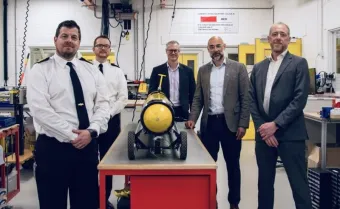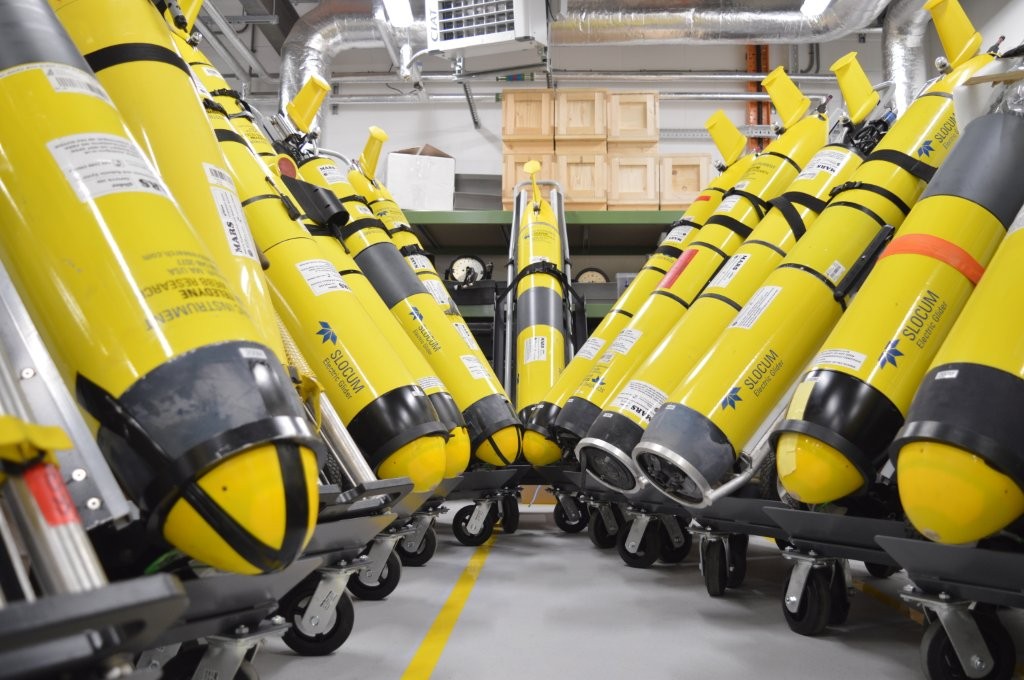
The UK's National Oceanography Centre (NOC) has renewed a memorandum of understanding (MOU) with the Royal Navy, reinforcing a long-standing partnership in marine science and technology.
The MOU, which includes collaboration with the Defence Science and Technology Laboratory (Dstl), the Ministry of Defence (MOD)’s science and technology organisation, underscores a shared commitment to fostering innovation and advances in autonomous and robotic underwater systems.
With expertise from NOC Innovations, the applied research and commercialisation arm of NOC, the agreement will help enhance the UK’s leadership in marine science and technology.
A ceremonial signing took place during the Ocean Business conference and exhibition at NOC in Southampton in April this year.
Dedication to cutting-edge autonomous technology
“This agreement reflects our mutual dedication to harnessing cutting-edge autonomous technology for the benefit of marine science, industry, and national security,” said NOC Chief Executive Dr John Siddorn. “NOC Innovations is proud to continue supporting the Royal Navy in its efforts with our world-leading expertise in marine science and autonomy.”
“This MoU renewal cements our strong partnership with NOC, allowing us to explore new technological frontiers in autonomy that will help to modernise our operations and ensure that the operational decisions we make are based on the most up-to-date environmental data,” said the Royal Navy’s Captain Jim Lovell, Captain Jim Lovell - Navy Develop – Head of Underwater Battlespace Capability.
“The partnership will also support the Royal Navy’s training and operational readiness, leveraging NOC’s expertise in deploying autonomous platforms.”

Dstl’s Chief Executive Dr Paul Hollinshead said, “The partnership with NOC and the Royal Navy demonstrates our commitment to collaborative development of autonomous maritime capabilities. By combining Dstl's scientific expertise with NOC's marine autonomy knowledge, we're accelerating the development of underwater technologies that provide clear operational advantage for UK defence.
“Together, we're strengthening the UK's position at the forefront of sustainable oceanographic science and technology and ensuring our armed forces have access to the most advanced autonomous systems and environmental data for effective decision-making in complex maritime environments.”
Sustainable oceanographic science and technology
Since the first MoU was signed in 2014 and subsequently renewed in 2021, the collaboration has supported a number of initiatives helping the UK expand its ability to develop ocean solutions and conduct advanced marine scientific research.
This includes facilitating a wider scope of collaborative projects and information sharing, while also exploring net-zero operations, positioning the NOC, the Royal Navy and Dstl at the forefront of sustainable oceanographic science and technology.
The partnership aligns with national and international initiatives, including the G7 “Future of the Seas and Oceans” programme.
NOC is a leader in marine autonomy with extensive expertise in developing and operating autonomous underwater vehicles including underwater gliders, the centre’s Autosub range, remotely operated vehicles and other robotic systems used for ocean exploration and research.
These innovations are critical to under-ice operations, deep-sea exploration and for national security applications.
Dive deeper
NOC is home of the Marine Autonomous Robotic Systems group.